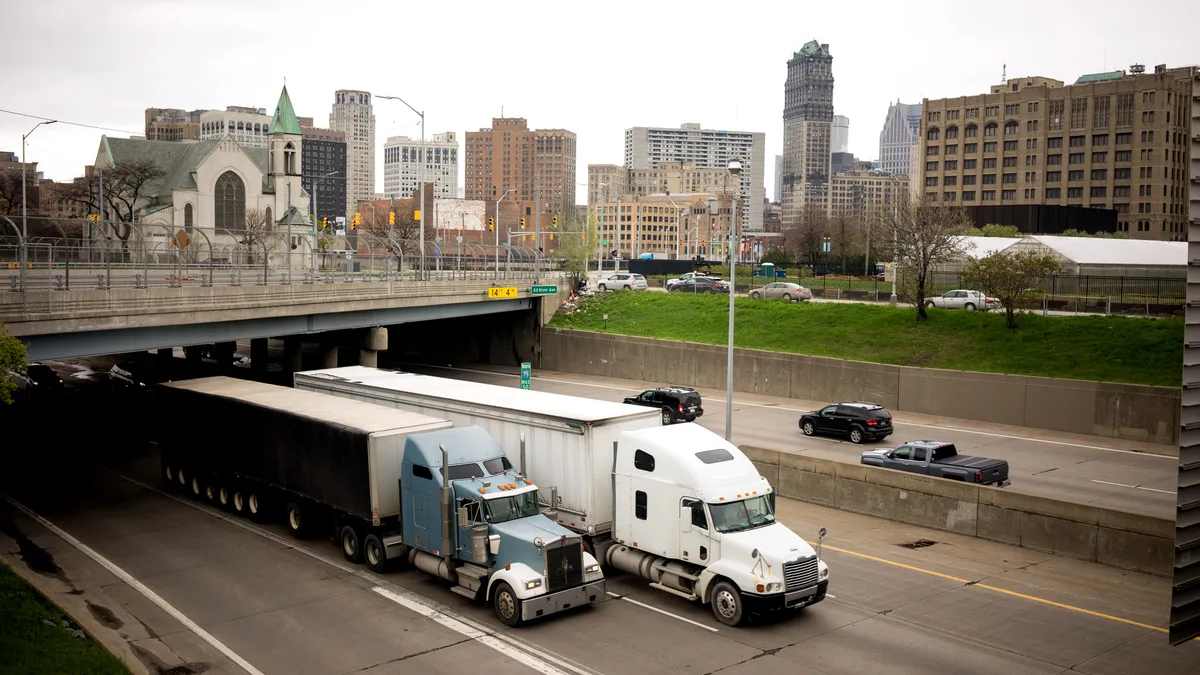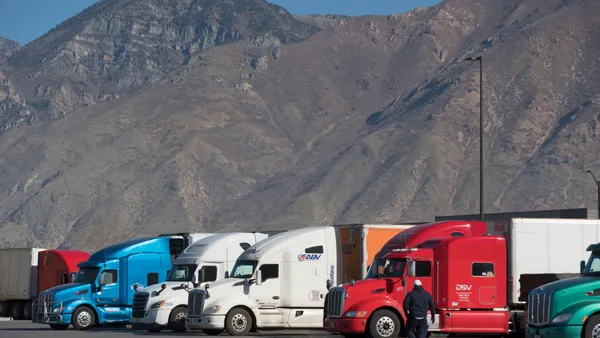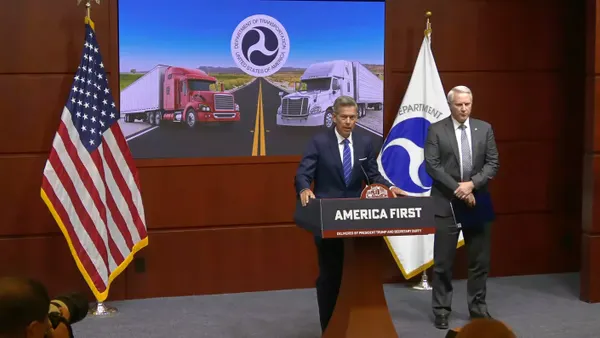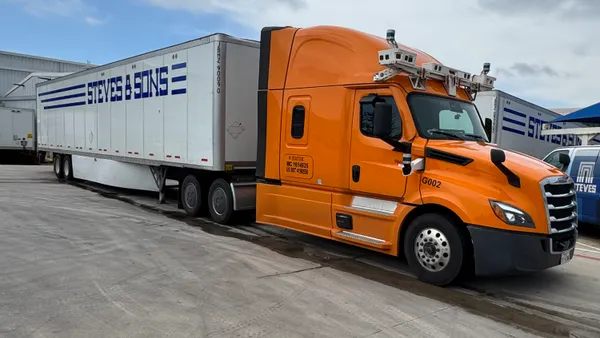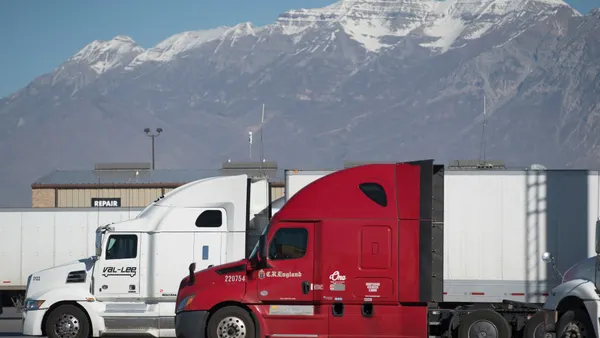Dive Brief:
- A legal battle is highlighting trucking concerns about emission regulations by the Environmental Protection Agency for heavy-duty model year 2027 vehicles and beyond.
- Litigants on Wednesday alleged the EPA’s March rule is an illegitimate restructuring of the industry, according to an opening brief. The filing represented groups ranging from the American Petroleum Institute to trucking associations and states.
- The parties, which filed at least eight lawsuits in May and June, are calling for a federal appeals court in Washington, D.C., to reverse the regulations.
Dive Insight:
The groups say the Phase III emission standards illegally mandate the use of EVs.
"These new standards are so stringent that EPA projects some 45% of America’s new heavy-duty vehicles will be electric by 2032 to comply—up from practically zero today," the brief said.
Switching to EVs will also make American trucking dependent on China and other countries with which the U.S. has fragile trade relations or significant policy differences, the filing said.
In March, the EPA unveiled its final rule, which called for more stringent emissions standards from OEMs' heavy-duty vehicles. The agency defended the move and said the changes would be technology neutral, "allowing each manufacturer to choose what set of emissions control technologies is best suited for them and the needs of their customers."
But the Owner-Operator Independent Drivers Association, which represents over 150,000 members in the trucking industry, is questioning that narrative.
"Although EPA's rule claims to be technology-neutral, its practical effect is to require a significant increase in the manufacturing and sale of electric vehicles," OOIDA President Todd Spencer said in an Oct. 9 legal filing.
EVs can also cost over three times as much as diesel trucks, Spencer said.
Other trucking groups involved in the legal battle also have weighed in with ongoing industry concerns regarding the regulatory move.
Fleets will lose revenue and be “forced to purchase expensive vehicles” that “often break down or catch fire,” Western States Trucking Association Executive Director and COO Lee Brown alleged in an Oct. 4 statement.
Trucking groups are also noting the lack of charging infrastructure currently in place and say the lengthy charging times will harm fleets.
The regulations could mean fleets will have to use electric trucks with heavy batteries, which will reduce carrying capacity because of weight limits, Arizona Trucking Association President and CEO Tony Bradley said in a June 17 statement.
"Large shipments will require more trucks and personnel to transport the same amount of goods," he said.



